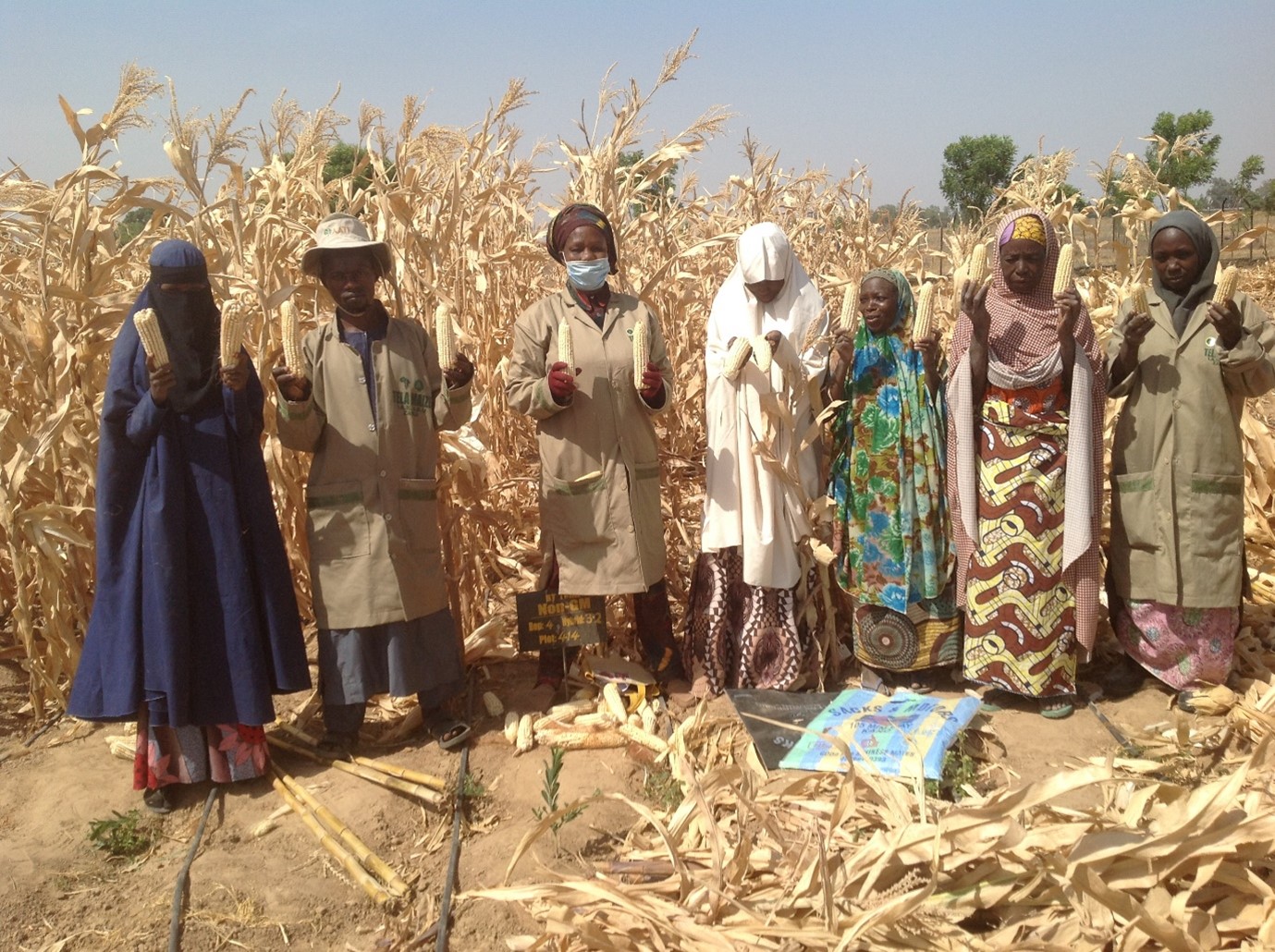Data from the third confined field trial of the TELA Maize project, that is being carried out at the Institute for Agricultural Research (IAR) Samaru, has shown that the variety produces 9 tons per hectare as against three tons by the best producing maize variety in Nigeria.
The variety being tried in Nigeria by IAR is resistant to stem borers and fall army worm and is also drought tolerant. It was developed through an international collaboration coordinated by AATF with national agricultural research systems in Ethiopia, Kenya, Nigeria, Mozambique, South Africa, Tanzania and Uganda; the International Maize and Wheat Improvement Center (CIMMYT) and Bayer Crop Science.
Prof. Mohammad Ishiyaku, Executive Director, IAR said at the harvest of the 3rd confined field trial, that the results from the three trials conducted so far were consistent. “It is resistant to stem borers, Fall Army Worm and has the capacity to withstand drought, it also demonstrated high yielding potentials when compared to the best yielding variety currently grown in the country.
“The best conventional variety being grown in the country yields about 3 tons per hectare while this Tela variety is giving us 8 tons per hectare. It is best suited to help Nigeria bridge the gap between maize demand and production which currently has a deficit of 6 million metric tons,” he said.
“The savings farmers will make from this maize variety is estimated to be over 3 billion naira from insecticide spray of 500hectares land and over 6billion naira from drought effects.
The Executive Director who was represented by the Assistant Director – Research, Prof Bitrus Tarfa also said that when released, the variety has the potentials of saving the country about N9 billion (USD24M) which farmers hitherto waste on insecticide spray.
Professor Ishiyaku noted the giant strides recorded by the TELA Maize Project in developing a climate resilient variety that is drought tolerant and resistant to the stemborer and fall army worm, as a noble contribution to solving farmers needs and improving the economy.
Prof Ishiyaku stated that Institute for Agricultural Research Samaru in its almost 100 years of existence has not only developed and released crop varieties that are climate resilient and farmer friendly but recognises the importance of cutting-edge tools in sharpening research output. It is in this vein that it combines conventional and modern genetic engineering tools to discover scientific solutions to farmers and consumer problems.
The Principal Investigator of TELA Maize Nigeria, Prof Rabiu Adamu, said the trial which was in its third phase started in Nigeria in 2019 with a view to mitigating the challenges of fall army worm and stemborers as well as drought capable of reducing farmers yield by 80 percent if not appropriately managed.
With the advent of TELA Maize, farmers will reduce the use of pesticides on maize to the barest minimum thus ensuring a safer environment and healthy populace.
Currently, Nigeria produces only about 12 million metric tons of Maize below the 18million metric tons required with a deficit of 6million metric tons. Also, the current yield per hectare of maize stands at 2.5 to 3 tons which is grossly inadequate for a population of over 200million people. TELA Maize when released to farmers will therefore bridge this gap by increasing their average yield to 9 tons per hectare.
The researchers are compiling all necessary data into a dossier for submission to the National Biosafety Management Agency in Nigeria to secure environmental release for the crop.




































































